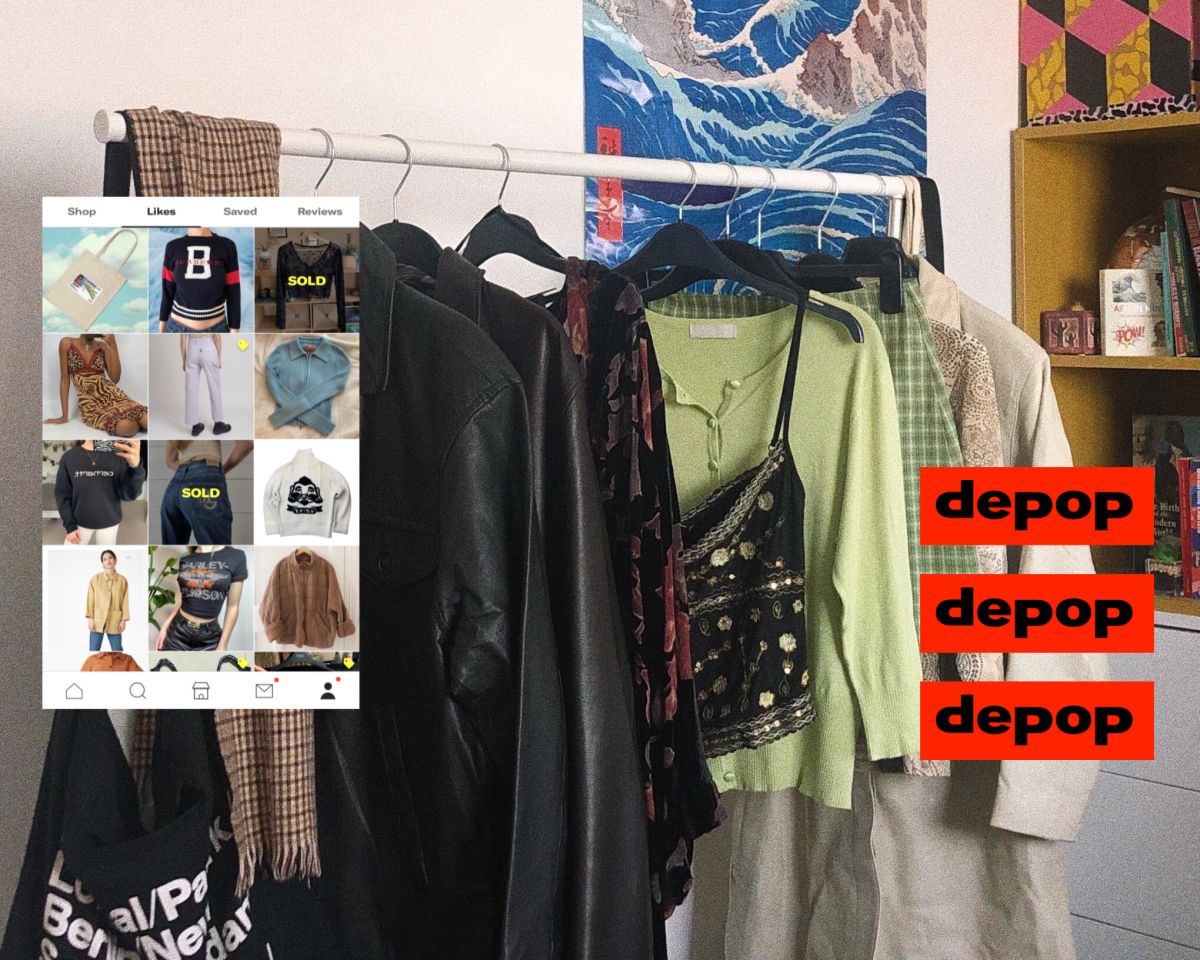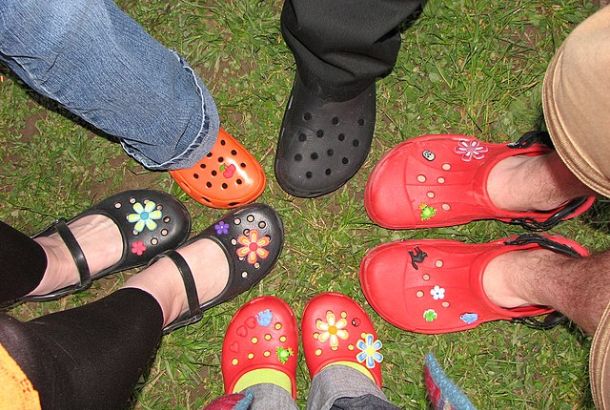Are Depop secondhand resellers really a new kind of evil?
By nicolamiles

During lockdown, many of us have found sanctuary in online retailers, relying on them to bring a sense of thrill back into our lives through one-click purchases. With an increasing amount of people now being more ethically and environmentally conscious, many of us have flocked to Depop to satisfy our longing for that buzz in a sustainable, guilt-free way.
As a result of this, Depop has boasted their “tremendous growth” in sales, with demand doubling since lockdown in March 2020. This is music to the ears of their many users who have turned reselling clothes on the app into a living. These resellers devote their free time to hunting down suppliers, searching for car boot sales, and sifting through charity shops to find the most sought-after vintage gems to flip at a profit online.
However, as the app reached over two million active users during lockdown, an increasing wave of criticism has been targeted towards its resellers. A bubbling moral panic, specifically concerning the ethics of those flipping charity shop items at a profit, has circulated its way throughout the internet. Critics took to TikTok, Youtube, and other platforms to express their frustration that clothes are no longer “as cheap as they used to be” and claim that it is unethical to “wipe out” charity shops. Many stress that it is particularly unfair to those from lower-income backgrounds.
But is it really morally wrong for someone to make a business from people’s unwanted clothes?
Whilst there are valid concerns, many claims are uninformed assumptions, and somewhat far-fetched. In this article, I will attempt to challenge several popular arguments that Depop critics jump to when attacking online resellers.

“Resellers buying stock from charity shops is unfair as they are taking up the ‘good clothes’ for people who need them most”
People who make this claim are often coming from a good heart, acknowledging that shopping secondhand is a necessity for some people, and resellers ‘buying all the good stock’ takes away the chance for less-privileged people to access cheap, durable clothing. However, we cannot deny that approximately 10-30% of donated items are sold by charity shops each year – the rest goes to landfills or gets shipped to developing countries.
In my own experience volunteering at a small Oxfam shop, the number of resellable donations we received was far more than what we were selling locally. There was an abundance of clothing, meaning there was more than enough to go around!
As it’s unlikely there will ever be a scarcity of good clothing in charity stores, resellers buying more clothing (with the intention to resell online) shouldn’t be perceived as a negative thing.
“A reseller’s excessive buying in charity shops increases demand and therefore leads charity shops to increase their prices, hurting those from lower-income backgrounds the most”
Some charity shops do indeed increase their prices over time; however, it is unlikely to be due to an increase in demand. Inflation has caused rent and maintenance prices to go up, inevitably leading shops to increase the prices of their stock.
Moreover, extra sales and an increase in demand aren’t necessarily bad things. Charity stores have daily sales targets to meet, so resellers benefit the charity by purchasing more than the average shopper. Charity shops need to make enough money to pay staff and bills alongside making enough profit for their cause.
Furthermore, as pointed out earlier, the majority of resellable donations are left unsold. With supply exceeding demand, the economic principle would mean that prices should remain low or fall if they were based on demand alone.
Charity shops claim their main purpose is to raise money for their parent charities. Unfortunately, providing cheap clothing for those in financial difficulty may not be their number one priority. Relatively higher pricing seems inevitable regardless of whether their demand is high or low, and we can’t ignore the fact that charity shops wish to get as much money as they can from their donations.
While the increase in prices may have caused charity shops to lose their dual-function of fundraising and providing low-cost clothing, this isn’t necessarily due to an increase in demand caused by resellers. Instead, many other inexplicit factors may be to blame.
“Depop resellers abuse thrifting as reselling items at a higher price is scamming people”
It is important to think about the amount of time, effort and research Depop sellers often put themselves through to find those in-demand gems. Thrifting requires a lot of endurance, and resale items should be marked up to reflect the time, labour and investments that the seller puts in when listing those items.
Reselling clothing isn’t a scam, it is a legitimate way to make money by making clothes more accessible to consumers, opening up garments to wider audiences that would have otherwise been restricted to only those available in the local area. Also, not everyone has the time to travel to their nearest charity shop and sort through an endless amount of clothing in countless stores to finally find something they like. Some people are willing to pay extra for an item as they appreciate the ability to save time and money that may have been spent travelling.
@depop #POV your the phone watching starstudent take his #Depop pics. #fyp
♬ Hope by Jack Stauber – 🕷Daycore ver.🕷
Many second-hand Depop resellers have been villainized with these out-of-touch claims, many of which perpetuate narrow-minded ideas of a dichotomy between working-class and middle-class people.
It is worth pointing out that charity shops are not exclusive to any particular socioeconomic group. A report by the Charity Retail Association (CRA) in 2017 has shown that social grade does not affect whether someone is more or less likely to use charity shops.
Critics also tend to paint a picture that all online resellers come from middle-class backgrounds, which again simply isn’t true. Reselling online is one of the easiest and most accessible ways to make quick cash – making it equally attractive to students, self-employed people, and the working-class.
At the end of the day, resellers promote sustainability and offer consumers new channels to avoid fast fashion. The issue regarding the ethics of reselling charity clothing is a very complicated and multifaceted one, but as long as Depop sellers are mindful when sourcing items, their business should not be characterized as immoral or unethical.







